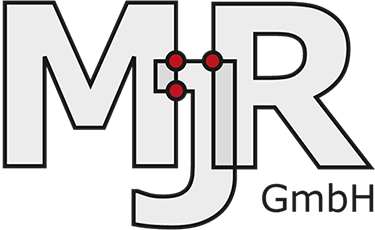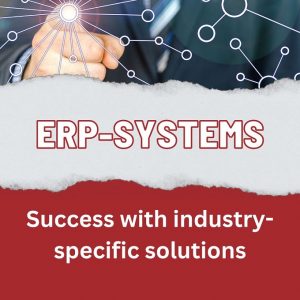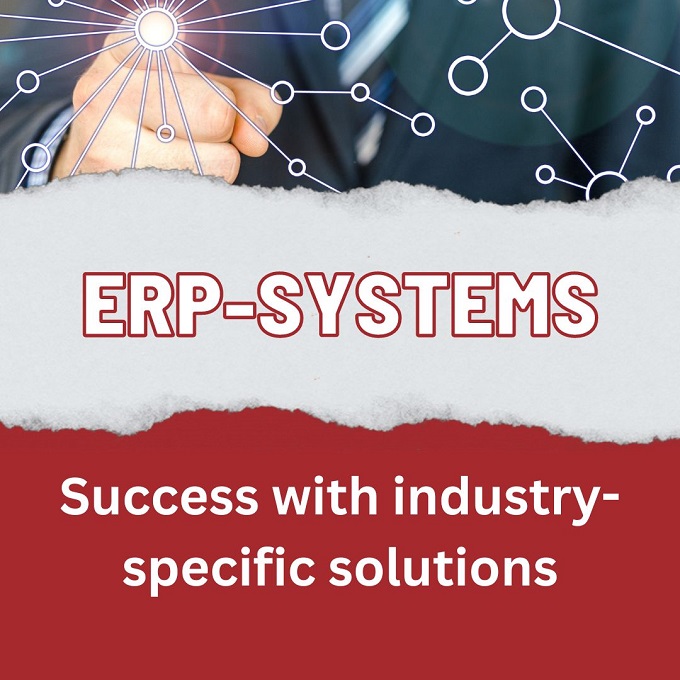Inhalt

Marcel Kosel
Sales Manager
Your partner for ERP and technology.
Today we would like to address a topic that often determines whether an ERP implementation project is successful: the importance of a thorough needs analysis.
In an era where ERP systems play an increasingly important role in business process optimization, efficient data management, and informed decision making, choosing the right system is of enormous importance. But how can we ensure that we are making the best possible choice? The answer lies in a well thought-out and targeted needs analysis.
Why is the demand assessment in ERP projects so critical?
A thorough needs analysis is the foundation of any successful ERP project. It enables us to understand the specific requirements, processes and goals of our company before deciding on an ERP system. This step is of paramount importance as it ensures that the chosen system not only meets current requirements, but also supports future developments and growth targets.
The stages of an effective needs assessment:
The use of IoT (Internet of things) in everyday life has already influenced numerous areas of our lives. Smart household devices such as smart thermostats, networked lighting systems and voice-controlled assistants such as Amazon Echo or Google Home have found their way into our homes and make our everyday lives more comfortable and efficient. By remotely controlling these devices via the Internet, we can, for example, turn on the heating before we arrive or have our favorite music played by voice command.
The Internet of Things (IoT) is not only impacting our everyday lives, but also industry. The networking of physical devices and machines opens up new opportunities to increase productivity, efficiency and flexibility in the manufacturing and industrial sectors. However, to leverage the full power of IoT in industry, a modern enterprise resource planning (ERP) system with integration capabilities is required. In this paper, we will take a closer look at the combination of IoT and ERP and highlight the benefits of such a system.
1. Detailed recording and analysis of processes:
Our first step is to create a comprehensive representation of our existing business processes. This allows us to identify bottlenecks, redundancies and potential areas for improvement. A sound understanding of the „as-is“ processes is essential to design the future „to-be“ processes.
2. Clear definition of requirements
A clear formulation of the functional and technical requirements for the ERP system is essential. This enables the identification of the right functions and modules that your company needs to operate smoothly.
3. Concrete definition of goals:
What goals do we want to achieve with the help of the ERP system? Cost reduction, efficiency increase, transparency increase, customer satisfaction? A clear definition of these goals helps to measure the success of the project and ensure that the ERP system provides sustainable added value.
4. Sustainability and flexibility:
On changes in the business world, it is of great importance to select an ERP system that not only meets current requirements, but also leaves room for future adjustments and enhancements without having to throw the entire system overboard.
5. Involvement of internal and external stakeholders:
Considering employees from different departments and hierarchy levels, as well as external stakeholders, provides you with invaluable insights. Diverse perspectives provide a comprehensive view of the company’s needs.
By investing time and energy in the needs analysis, you minimize the risk of wrong decisions and implementation hurdles. A well-planned needs analysis forms the foundation for a smooth ERP implementation and the long-term success of your company.
Also visit our other posts,to learn more about topics like ERP, digitalization & corporate strategy.

Or get in touch with us directly!
Marcel Kosel
Sales Manager








